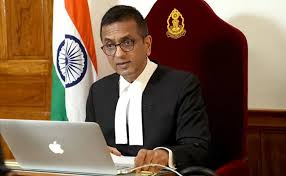NEW DELHI: Calling upon lawyers to rise above political interests, Chief Justice of India DY Chandrachud has said that their ultimate loyalty must lie with the Constitution and courts.
“In a vibrant and argumentative democracy like India, most individuals have a political ideology or inclination. To quote Aristotle, human beings are political animals. Lawyers are no exception. However, for members of the Bar, one’s highest interest must not lie with partisan interests but with the court and the Constitution,” the CJI said at the centenary year celebration of the High Court Bar Association, Nagpur.
The CJI said he was very disturbed by the tendency of advocates to comment on pending cases as well as judgments of the court, underscoring the critical importance of maintaining an independent Bar and Bar associations to safeguard the integrity of the judiciary and to uphold constitutional principles.
Justice Chandrachud, however, said, “But once a judgment is pronounced, it is public property. As an institution, our shoulders are broad. We stand ready to receive both praise and criticism; bouquets and brickbats, be it through journalistic pieces, political commentary or in the social media.
“As members of the Bar association, with years of training and experience, you must distinguish yourself from laypersons while reacting to judgments of the court and engaging in legal discussions.
Of late, I am very disturbed by the tendency of members of the Bar association to comment on cases which are pending before the court and of commenting on judgments delivered by the court,” the CJI noted.
Office-bearers and members of the Bar should not forget while reacting to judicial decisions that they are officers of the court and not laypersons, he said, adding the Bar as an institution was essential to preserve judicial independence, constitutional values and dignity of the court.
The judiciary has time and again risen to the occasion to assert its independence and non-partisanship, Justice Chandrachud said.
India’s Constitution was an inclusive constitution intended to bring together every person, including “the butcher, baker and the candlestick maker” (people from diverse backgrounds), he said.


